Yes, your dog’s grooming schedule can make their skin worse if it is not suited to their breed, coat type, or lifestyle. Over-grooming strips away natural oils while under-grooming causes buildup and irritation. The right balance, along with proper tools and products, is essential for healthy skin and coat.
Dog Grooming and Hidden Skin Problems
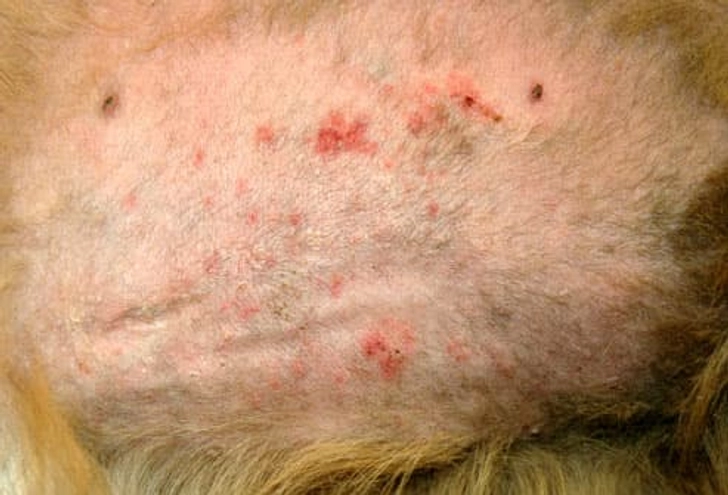
Is your dog’s grooming schedule making their skin worse? The truth is that it often does if the routine is too frequent, too infrequent, or done with the wrong products. Many owners believe they are helping their pets, yet their approach may be creating discomfort.
The balance between hygiene and skin health is fragile. Dogs rely on their natural oils to protect the skin, and grooming mistakes can disrupt that balance.
Why Grooming Frequency Matters for Skin Health
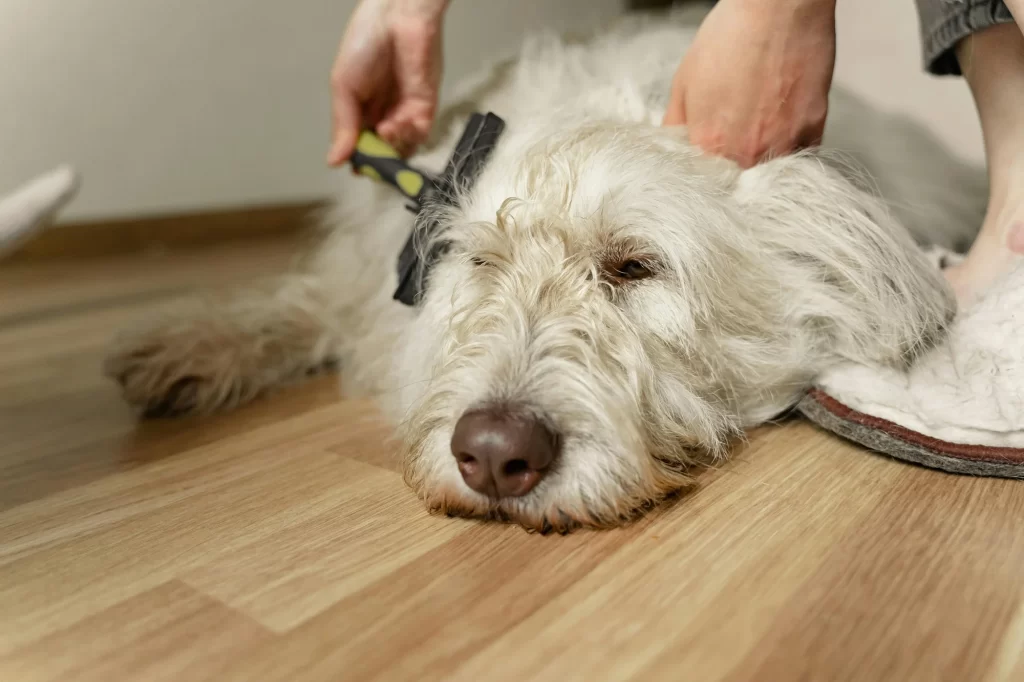
A dog grooming schedule is not one-size-fits-all. Both over-grooming and under-grooming lead to problems.
- Over-grooming strips the skin of natural oils, leaving it dry and prone to flaking.
- Under-grooming allows bacteria, dirt, and allergens to build up, leading to irritation.
- Frequent bathing without the right shampoo changes skin pH and triggers itching.
Your dog’s coat type, activity level, and health all affect how often they should be groomed.
Signs Your Dog’s Grooming Schedule Is Making Skin Worse
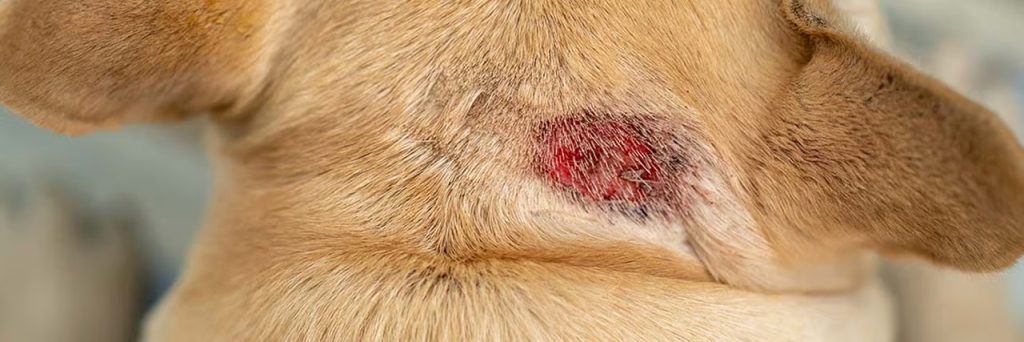
If your grooming routine is hurting your dog’s skin, you will see clear signals.
- Redness or inflamed patches
- Flaking or dandruff
- Excessive scratching
- Licking or chewing at paws
- Unpleasant odor even after bathing
These signs mean the grooming routine needs adjusting.
Common Grooming Mistakes Owners Make
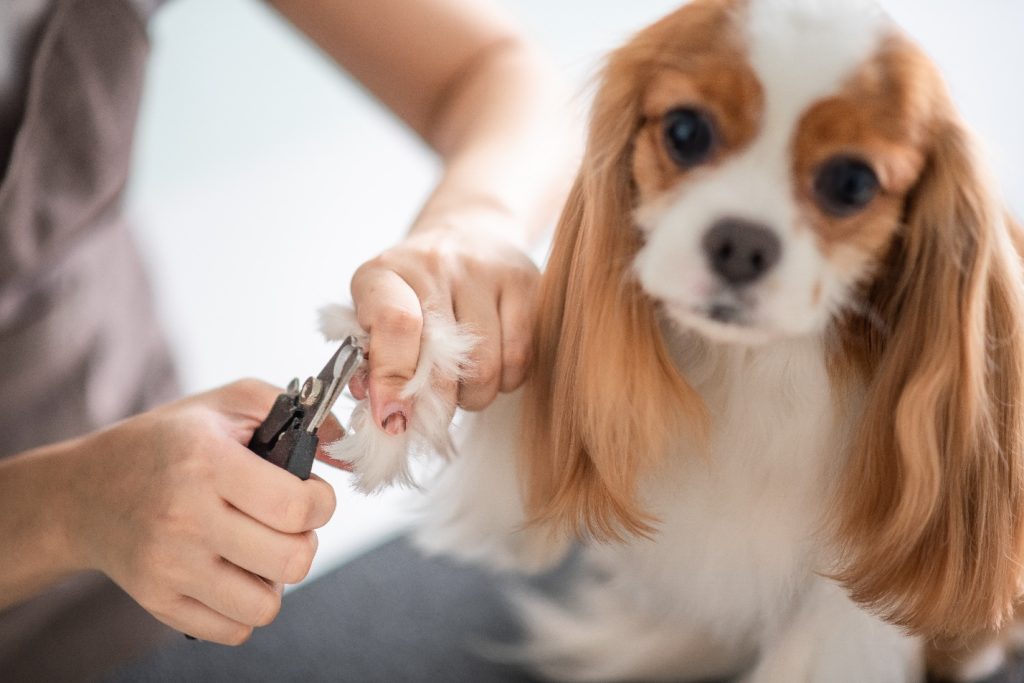
Mistakes in grooming routines are the main reason for dog skin irritation from grooming.
- Using human shampoo instead of natural dog shampoo
- Bathing too often, especially for short-haired breeds
- Skipping brushing sessions that prevent matting
- Ignoring brushing frequency for double-coated dogs
- Cutting hair too close, causing razor burn
Many owners are unsure whether their dog really needs a wash or full groom, which often leads to mistakes. A quick bath may freshen up a coat, but skipping brushing, trimming, or ear cleaning means hidden skin issues can be missed. Knowing the difference helps prevent irritation and keeps your dog’s coat balanced.
Breed-Specific Grooming Needs
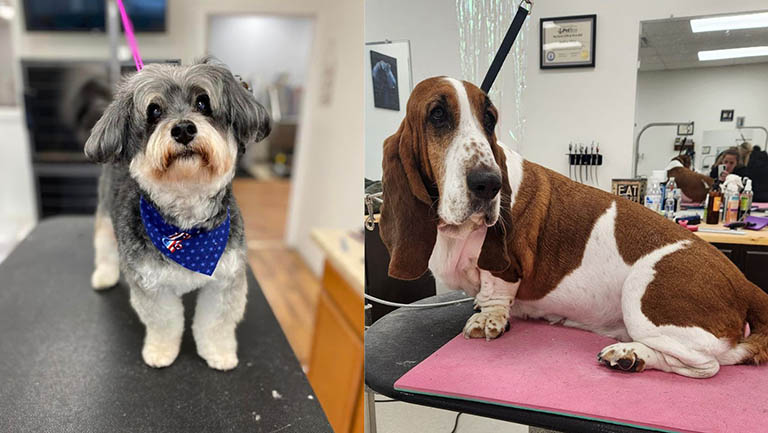
Every breed requires a different approach. One schedule does not fit all.
- Short-haired breeds like Beagles need brushing weekly but not frequent baths.
- Long-haired breeds like Poodles require regular brushing to prevent tangles.
- Double-coated breeds like Huskies need seasonal coat management, not shaving.
A generic grooming frequency will often harm sensitive breeds.
Healthy Dog Grooming Schedule (Expert Recommendations)
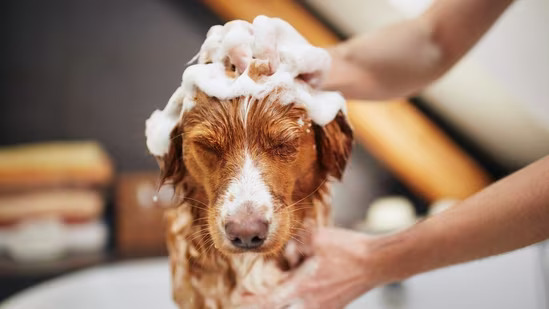
How often should you groom your dog to avoid skin problems? A balanced schedule is key.
- Bathing once every 4–6 weeks with a gentle shampoo is a safe guideline.
- Weekly brushing suits most dogs and removes loose hair and debris.
- Dogs with allergies may need special products or shorter intervals.
- Outdoor dogs might need more frequent cleaning, but with water-only rinses.
The healthiest approach is adjusting to breed, skin type, and environment.
At-Home Grooming vs Professional Grooming

At-home grooming works for routine maintenance. Professional grooming is valuable for skin care and coat health.
- At home, you handle brushing, wiping, and light trimming.
- Professional grooming includes skin checks, ear cleaning, and coat shaping.
- Groomers spot early signs of infections that owners often miss.
- Pet grooming tips from experts help owners avoid common mistakes.
For those interested in building professional skills in animal care, enrolling in an Animal Welfare Training Program can provide the knowledge needed to understand skin health, coat management, and ethical grooming practices at a deeper level.
When to Seek Veterinary Help

A grooming routine should not replace medical advice.
- Persistent itching or sores require professional evaluation.
- Skin infections, pus, or foul odors point to deeper issues.
- Chronic allergies need vet dermatology advice.
Do not wait if the skin condition worsens. Early treatment prevents long-term harm.
Preventing Skin Issues with Smarter Grooming
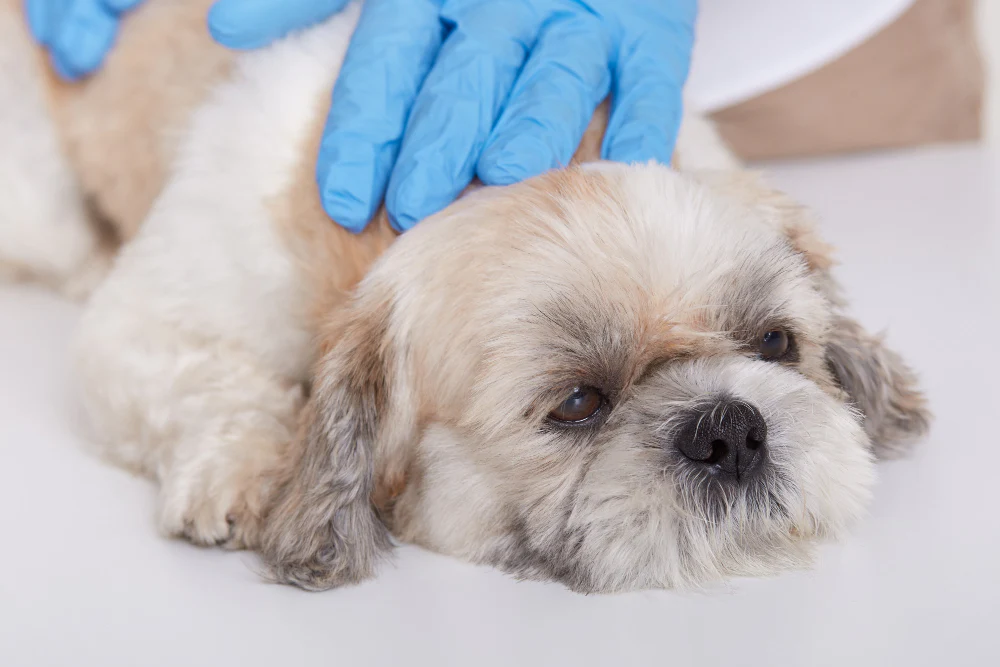
Skin care for dogs is about prevention. A healthy dog coat depends on consistent, balanced care.
- Choose hypoallergenic shampoos.
- Stick to natural dog shampoo, never human products.
- Avoid over-bathing dogs with sensitive skin.
- Use lukewarm water, not hot.
These small adjustments maintain skin balance.
Practical Grooming Tips for Dog Owners
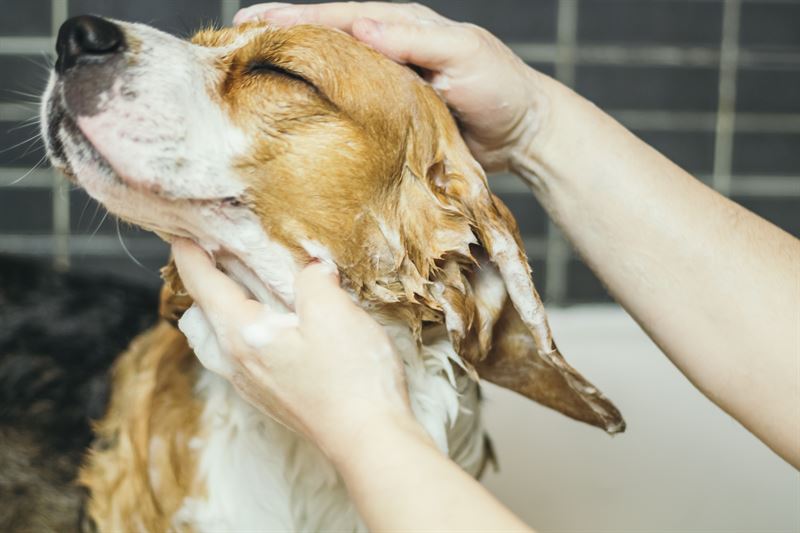
Best grooming practices for dogs with sensitive skin include simple steps.
- Keep a grooming kit with brushes, wipes, and natural shampoo.
- Match brush type to coat type.
- Use unscented grooming wipes for quick cleaning.
- Schedule grooming consistently.
- Watch for behavior changes that show discomfort.
A routine tailored to your pet prevents problems before they start.
Healthy Dog Coat and Lifestyle Factors
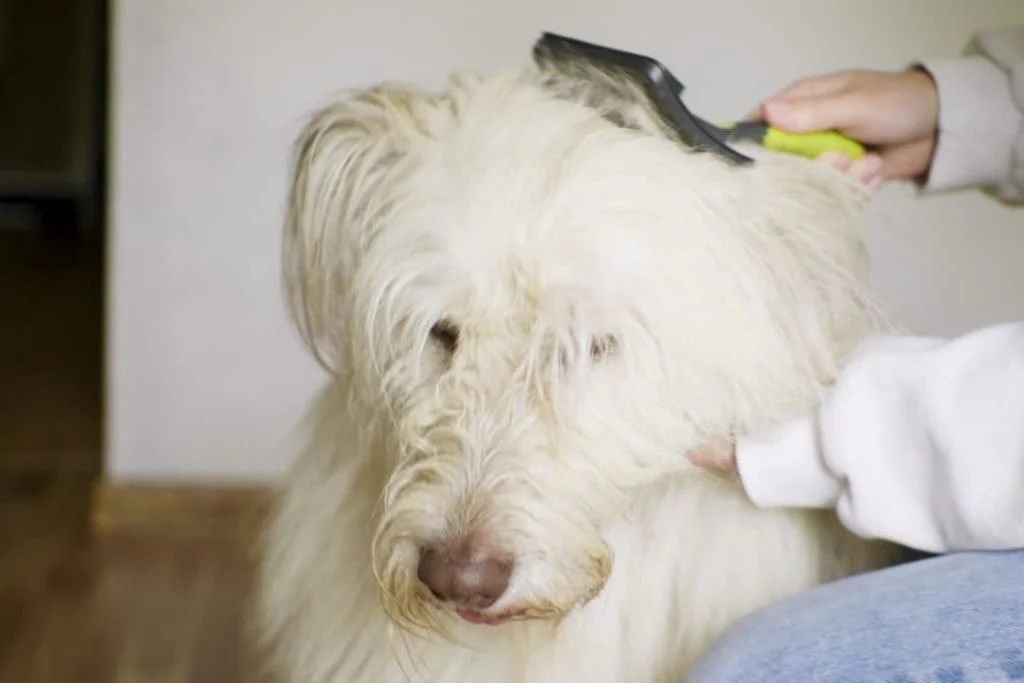
A grooming schedule is not the only factor in skin health.
- Diet affects coat shine and skin strength.
- Hydration supports natural oil production.
- Environment and seasonal changes influence skin irritation.
A healthy lifestyle works with grooming to protect your dog’s skin.
How Careers Collectiv Adds Value
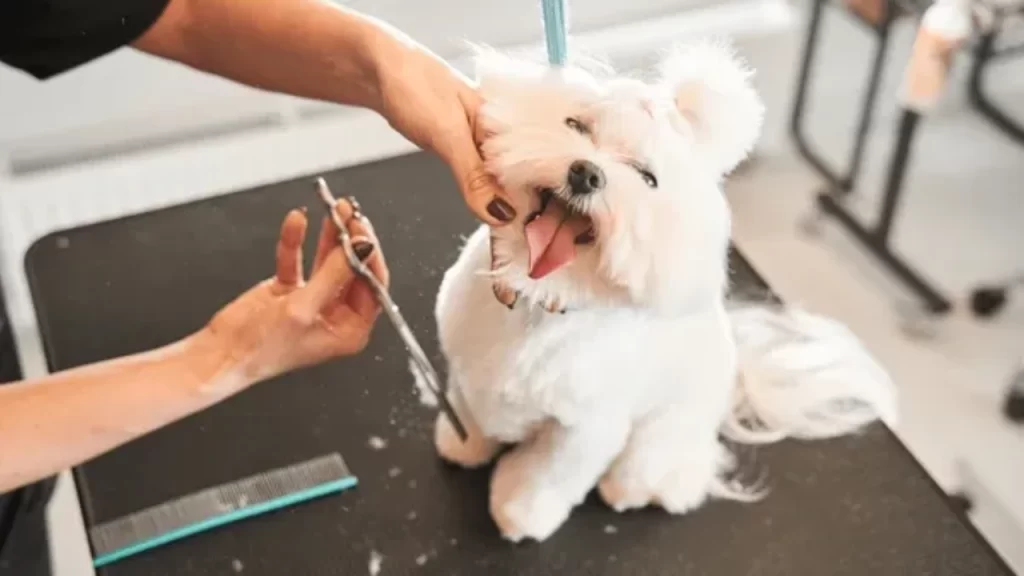
At Careers Collectiv, we believe education matters across every industry. This includes pet care. By understanding how grooming affects canine skin health, owners can make informed decisions that improve quality of life for their pets. Our focus is on building knowledge that leads to better practices at home and in professional settings.
Keep Your Dog’s Skin Healthy Through Smart Grooming
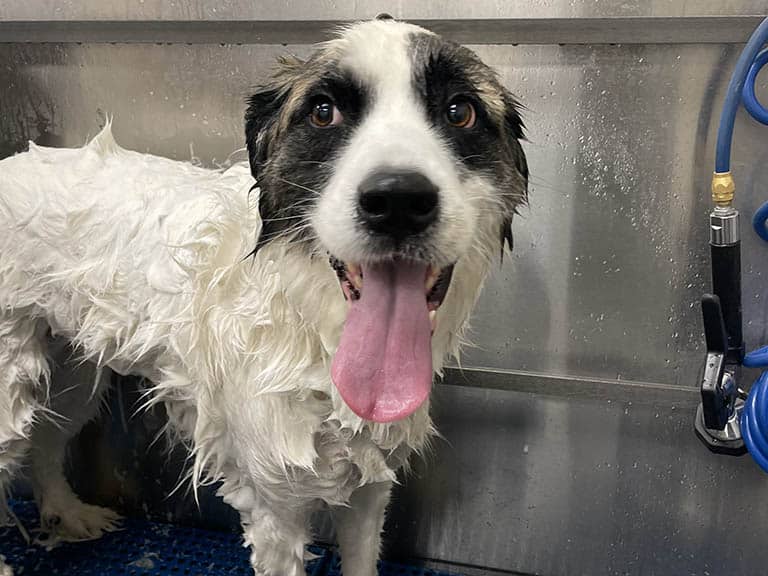
Is your dog’s grooming schedule making their skin worse? It will if it is not adapted to breed, lifestyle, and coat type. The right frequency, products, and awareness create a healthy dog coat and prevent irritation.
Pay attention to signs of skin discomfort. Adjust your approach when needed. Consult a vet or professional groomer when problems persist. With a smarter grooming routine, you protect both skin and overall health.